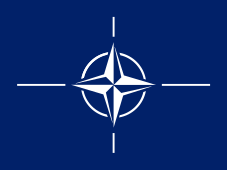April 2016 Kabul attack
On the morning of 19 April 2016, Taliban militants attacked a security team responsible for protecting government VIPs in Kabul, Afghanistan. The initial attack killed 64 people and wounded 347. It was their biggest attack on an urban area since 2001.[1][2][3]
| April 2016 Kabul attack | |
|---|---|
| Part of War in Afghanistan (2001–present), Operation Omari | |
| Location | Kabul, Afghanistan |
| Coordinates | 34.5553°N 69.2075°E |
| Date | 19 April 2016 |
| Target | Government employees |
Attack type | Mass murder, suicide bombing |
| Weapons | Bomb, guns |
| Deaths | 69 (62; 7)† |
| Injured | 367+ (347; 20+)† |
| Perpetrators | |
† First number in brackets: primary attack Second number in brackets: attack on broadcaster | |
Bombings
Local broadcaster TOLOnews reported that the attack involved a suicide bomber detonating a vehicle laden with "hundreds of kilograms of explosives" and the militants then making their way into the compound of "Department 10" of the National Directorate of Security (NDS)[2] and opening fire. The bomb that detonated caused a ceiling to collapse in a classroom where elite intelligence officers were being trained. An Afghan security official said members of that unit accounted for about half of the people killed.[4] The local broadcast station said that a two-hour gun battle ensued between the militants and security forces.[5][6]
Developments
Sediq Sediqi, a spokesman for the Afghani Interior Ministry, said that despite the target, most of the victims were civilians.[1] Ismail Kawasi, spokesman for the Public Health Ministry, said that 327 wounded have been brought to area hospitals.[1] On 20 April 2016, Sediqi confirmed in a tweet that 64 "innocent Afghans" were killed and 347 wounded.[7]
Afghan Taliban spokesman Zabihullah Mujahid claimed responsibility for the attack.[6] He said as many as 92 security staff and soldiers were killed.[2] It came after the group announced its annual spring offensive Operation Omari.[6]
Reactions
Domestic
President Ashraf Ghani issued a statement saying that the attack proved that the Taliban were growing weak and therefore resorting to asymmetric warfare.[1] Shortly after the attack, women's rights activist Wazhma Frogh wrote on Twitter that the attacks took place near schools and that parents were attempting to protect their children.[6]
Some parliamentarians strongly condemned President Ashraf Ghani for failing to provide security from the terrorist attacks.[4]
International
Supranational unions


Countries



See also
- List of Islamist terrorist attacks
- List of terrorist incidents, January–June 2016
References
- Faiez, Rahim. "Dozens Killed in Taliban Attack on Afghan Security Agency". ABC News. Archived from the original on 19 April 2016. Retrieved 19 April 2016.
- Smith, Josh (19 April 2016). "Afghan Taliban kill at least 28 in major attack in central Kabul". Reuters. Archived from the original on 19 April 2016. Retrieved 19 April 2016.
- Shereena Qazi; Al Jazeera & agencies (19 April 2016). "Suicide car bomber attacks heart of Afghanistan's Kabul". Al Jazeera English. Archived from the original on 22 April 2016. Retrieved 22 April 2016.
- Craig, Tim; Salahuddin, Sayed (20 April 2016). "As Kabul death toll rises, fears also boosted of more powerful Taliban bombs". The Washington Post. ISSN 0190-8286. Archived from the original on 8 May 2016. Retrieved 20 April 2016.
- Onyanga-Omara, Jane. "Officials: At least 28 dead, over 300 wounded in Kabul attack". USA Today. Archived from the original on 19 April 2016. Retrieved 19 April 2016.
- Michael Pearson; Masoud Popalzai & Zahra Ullah. "Dozens die in Afghanistan as Taliban attack". CNN. Archived from the original on 20 April 2016. Retrieved 19 April 2016.
- "Afghanistan attack: Kabul suicide blast deaths rise to 64 - BBC News". BBC News. Archived from the original on 20 April 2016. Retrieved 20 April 2016.
- Press, Associated (19 April 2016). "The Latest: UN Security Council condemns Taliban attack". The Washington Post. ISSN 0190-8286. Retrieved 20 April 2016.
- "PM Narendra Modi condemns terror attack in Kabul". The Economic Times. Archived from the original on 31 March 2017. Retrieved 20 April 2016.
- "Modi condemns Kabul blast". Business Standard. Archived from the original on 20 April 2016. Retrieved 20 April 2016.
- "Press Release Regarding the Suicide Attack Perpetrated in Kabul". mfa.gov.tr/. TR Ministry of Foreign Affairs. Archived from the original on 16 July 2016. Retrieved 19 April 2016.